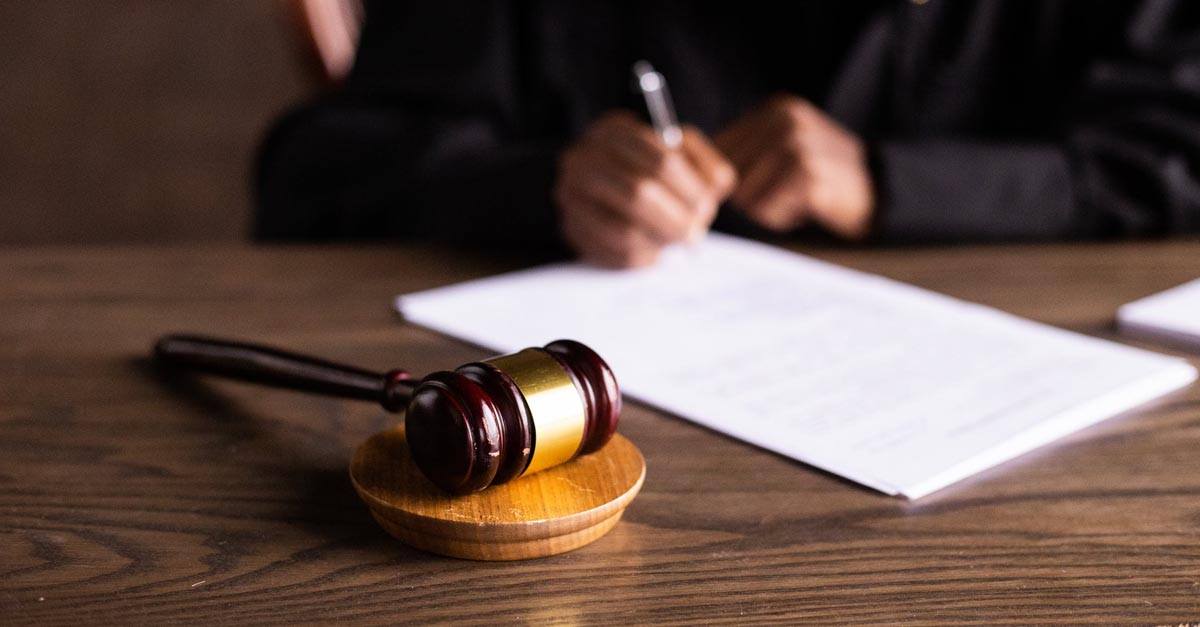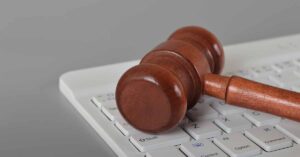USA. Protests in criminal proceedings: summary practical view

To practice law before the courts of Justice of the United States, both at the Federal and State levels, and once the Bar Examination has been passed or proof of capacity required by each State, and also, where appropriate, at the Federal level to be able to apply before the jurisdictions of the respective courts and tribunals, including the Supreme Court of the United States (which, to unlike us, unitarily forms both the supreme ordinary and constitutional jurisdiction of the Nation, thus avoiding foreseeable conflicts…), it is essential a deep knowledge of the so-called Rules of Evidence em>, which we would freely translate as “test rules”, and which are, in short, an outstanding, specialized, very practical and even autonomous part and separated from the Procedure Laws or procedural laws in the strict sense and from the Jury lnstructions or instructions to the juries. I remember that during the years when the Military Base for Joint Use of Torrejón de Ardoz (Madrid) existed, so that a Spanish lawyer@ could apply to the < in American military courts, apart from having been hired by the Base for the defense of a specific military case, they required him to be fluent in the language of the court and the < em>Rules ot Evidence militaries, what had to be demonstrated by passing an examination before the military court itself (Judge Advocate), who was the one who discretionally granted professional accreditation before that specific jurisdictional forum.
Well, I am firmly convinced that in our Procedural Law -–as much as it may bother our professors of the subject– there is nothing really comparable to the detailed development practical provided by the Rules of Evidence during the oral trial hearing, especially in criminal matters; although surely there will be some distinguished proceduralist who will maintain just the opposite… And I have really missed this shortcoming when in the course of the trials I see the multiple procedural transgressions that occur daily, more and more, both by prosecutors and by lawyers, without the Court generally intervening to put an end to it, either due to lack of the necessary protests that the affected parties should generate; which represents a notable difference between the American and Spanish procedural practice during the oral hearing. And it is that, for the first, the North American judge generally expects the diligent activity of the affected party and that it is itself the one that promotes the objection or protest , to then resolve on it, either declaring its admission (sustained), or its rejection (< em>overruled), while, on the contrary, in our procedural practice we have the strong impression that this task falls almost exclusively to the Court and we even have the impression that the interference of the party protesting It even annoys the Court, especially when repeated protests are made to protect their rights and interests during the hearing. It is clear that the Spanish Court understands that in order to ensure the balance of the process, it is enough and it is superfluous… without help or intervention from anyone, although later in many judgments on appeal and / or cassation it is blamed and afée precisely to the party to calm down or lack of timely diligence to protest some essential defect of the process that could have been easily noticed by her at the time and she did not did…
It is obvious that both the estimated objections (sustained ) as dismissed (overruled) by the American Trial Court, must be recorded in the Record >) so that they can have virtuality for the purposes of Appeal (Appeal) by the party affected by said interlocutory decisions; and that is identical in Spain.
To briefly illustrate what I am summarily trying to present and preferably following the Federal Rules of Evidence, as it is the main body from which the state Rules derive, I am going to relate some basic Rules whose knowledge for those who are not familiar with the subject will surely allow a better understanding of typical aspects of its application, and perhaps even deserve our attention due to its possible practical utility in the exercise of our profession in the Spanish jurisdictional forum, insofar as it is applicable; and, in any case and as a minor damage, out of simple professional curiosity.
Thus, for example, the Best Evidence Rule number 1002 allows objection, or be protesting to prevent the presentation “per saltum” in the course of the trial by any of the adverse litigating parties a documentary evidence that is a simple duplicate or copy of a document , photos, recordings, etc. to integrate it into the body of evidence of the case when it could have been done at a previous procedural moment, unless, to the full satisfaction of the Court, there are well-founded and acceptable reasons that would have prevented the material contribution of the original piece and, in addition, they are offered all guarantees of authenticity regarding the copy presented; and this, without prejudice to recording the protest in the case of admission of the contested evidence.
The Federal Rules 403 and 608 (a) allow you to object to the witness answering the questions that the witness intends to ask. opposing party in order to discredit, before the Court and especially before the Jury, the witness previously and duly admitted as such, using extrinsic allegations and arguments prior to the process. Thus, for example and under this Rule, the objection was accepted against the defense that tried to challenge and discredit the testimony given by a minor in a case of sexual abuse , despite the fact that his ability to tell the truth had been expertly accredited by an expert in declarations of minors and, moreover, the opposing party had never previously challenged the claim that he declared in trial as a witness.
Character Inadmissible. This objection is basically covered by Federal Rules of Evidence numbers 404 (a), 405, 60B, 609, which allow the objection of the defense, for example, in the case of a serious traffic accident in which, presumably, the driver of the vehicle had run a red light causing a serious injury to a pedestrian, and his opposition to the questioning of a passenger who was traveling with the driver of the damaged car was raised as a witness to how the defendant had driven recklessly on occasions prior to the accident.
Collateral Matter Rule number 403 allows the Court discretion accept (sustain) the protests that arise against the adverse intention of diverting the straight course of the process to collateral, tangential, trivial and irrelevant issues, alien to the core of the case. It must be recognized that in our country this is certainly dealt with diligently, without the need for any encouragement and even with excessive zeal by the Court itself.
Competency Not Established is the procedural principle that is based on Rule 601 of Federal authorities to prevent him from deposing, either as Witness or as Expert Witness, who lacks the necessary suitability and/or competence. Indeed, Rule 601 prescribes that, in principle, every person has the capacity to be a witness unless the contrary is sufficiently proven; that is, that it is an individual incapable of understanding the facts and/or his obligation to declare truthfully and impartially. This inability is frequently alleged as objection when the testimony of minors is sought in very serious criminal matters and whose unfavorable testimony could tip the balance in a decisive and contrary way. to the procedural interests of the protester. Regarding the Experts, clearly the objection will be based on their lack of qualification to sufficiently examine the specific case or on their demonstrated partiality regarding the issue under trial.
Exhibit Foundation Lacking. Federal Rule number 901 allows the defense to question the admissibility as evidence for the prosecution of any piece of conviction obtained in the course of police intervention at the scene and of which there may be doubt reason about his due and uninterrupted custody or what in the North American process is called chain of custody.
Expert Testimony Improper. Based on Federal Rules 703 and 801, any potentially affected party can object so that the Expert Opposite is not accepted as evidence when the Expert, not having attended the act of oral trial, intends to read its conclusions, breaking the principle of efficient confrontation. Clearly it would be a case of hearsay, that is, reference testimony and, therefore, undoubtedly, the protest should be sustained, under the aforementioned Rules of Evidence.
Routine Practice Improper. This Rule, which is protected by number 406 of the Federal Rules, supports the protest against the admission as valid testimony of the statements given by a witness or an expert belonging to to an institutional organization, such as the police force acting in a report, regarding the fact that “the police action, which has resulted in a violent confrontation with significant harmful results suffered by the detainee, has occurred within the context and usual practice of the repressive Corps”. In order to validly maintain such a defensive argument, it is absolutely necessary to prove that there really is a prior action protocol duly approved that allows said violent repressive action in a context very similar to the one being judged, in addition to a considerable Number of accredited cases in which that this was indeed done because it was in accordance with the protocol.
Harassment. This is, without a doubt, one of the most common protests (objections) in all kinds of trials ( harassing the Witness!), which is formulated based on Federal Rule of Evidence 611 (a) and is well known and used in our practice forensic, although perhaps not as frequently as in the United States Courts because in our country the moderating power is attributed to the presidency of the Court itself much more than to the initiative of the parties in litigation. Even, as is well known, article 709 of our current criminal law textually prescribes: “The President will not allow the witness to answer leading questions or cross-examinations, suggestive or impertinent”.
As a paradigmatic and, in my opinion, risible case of harassment, whose protest was considered pertinent by the Court in a process for medical negligence, it is the of a doctor named Amador, and to whom the plaintiff, with an obvious desire to discredit and even ridicule him, asked: “Isn’t it true, Doctor Amador, that you are known in the medical profession like Amador, the doctor who hurts more than pain? …
Hearsay Exceptions. This is an issue of fundamental importance in procedural combat and enjoys a very broad jurisprudential doctrine and, furthermore, it is regulated in maximum detail in American procedural practice. I am referring to statements based on mere “third party references” instead of one’s own, personal, direct knowledge through the five senses. It is one of the most common causes of objections during interrogations in court, much more frequent than in our forensic practice. The typical formula to invoke it is very simple and synthetic: “objection hearsay”, without further indications, because the Court, under the principle iura novit curia, must know perfectly well whether or not it concurs and, consequently, decide the alternative of: sustained or overruled under the rule of the Federal Rules of Evidence , very specifically number 803. The truth is that the subject of the hearsay is so important, broad and interesting that, by itself, it would deserve, at least, some reflections. aside.
Hypothetical Question Improper This is a objection or protest very frequently used, especially in the course of questioning Opposing Experts and which finds its legal support in Federal Rule of Evidence 702. Although the Rule< /em> 705 authorizes Expert Witnesses to testify –as opposed to Witnesses— offering opinions and inferences of According to his professional experience without even being subject to specific facts perfectly accredited in the records themselves, this laxity of criteria finds its limitations when, for example: (1) The issues presented to the Expert as hypotheses do not contain enough data to allow it to give a rational and coherent response; (2) The hypotheses presented to the Expert have no real connection nor do they allow a rational inference with the case being judged; (3) The hypotheses presented to the Expert lack proven solidity in the doctrinal field of expertise, ultimately being mere speculation or conjecture, the subject of a complex variety of conflicting opinions that do not provide any clarity. to the defendant.
To try to further illustrate the issue, we will offer an example of a hypothetical question to a Medical Expert that is the object of objection: Question: “Doctor, assume as a hypothesis that after the accident one of the doctors in the ER sectioned the patient’s neck with a scalpel, affecting the jugular. Is that your opinion about the cause of death?.Objection of the opposing lawyer: “Your Honor, this is a hypothesis without any relation to the events recorded in the case file. The question must be considered impertinent and the Expert instructed not to answer it“. Ruling of the judge: Objection sustained. < em>Lack of Relevance.
This objection must be filed today under Federal Rules of Evidence 401 and 402 and is a< em> objection so old that, jurisprudentially, it is even prior to the existence of the Federal Rules. In essence, it intends to highlight that the question that is formulated adversely lacks the necessary rational consistency ( relevance) regarding the case sub iudice; that is, that it is irrelevant and immaterial and, therefore, must be declared irrelevant and/or useless.
Judicial Questioning Improper. This objection is specifically included in the Federal Rule of Evidence 614 and, in my opinion, it is absolutely unthinkable in Spain and, possibly also, in the vast majority of countries continental. It is nothing more and nothing less than, for example, in a trial before the Jury Court and as a consequence of a question formulated by the Court itself, the party who feels their rights affected by the consequences that the answer to that question could have, asks the presiding judge for permission to approach the podium –out of the reach of the jury– to, subsequently, file an objection by consider that the Court’s question is not impartial, it breaks the necessary procedural balance between the parties and, furthermore, it is suggestive and therefore, the court itself, in a kind of “appeal for reversal”, must exclude it due to its own impertinence…
Leading. It is precisely another of the historic objections, of those of a lifetime and that even the most inexperienced and indiligent Lawyers, on occasion they dare to formulate it when they cannot find any other, despite the fact that it may not be the place or the moment or the proper circumstances to do so… It is currently protected by the Federal Rule of Evidence 611. (In our procedural practice, these are the so-called protests against leading or suggestive questions, that is, those in which the question suggests the answer in an obvious way). In our procedural practice, unfortunately, we see that at least suggestive questions are continually asked by some prosecutors, without any embarrassment, especially in matters of public health, without the Court being feel altered in the least, nor, on the other hand, the defense lawyers jump from their seats to formulate the corresponding protest…
Narrative It is an objection or protest that must be filed under Federal Rule 611 and intends to oppose the vicious, perverse and impertinent practice, so widespread in our country, when when interrogating the defendant the prosecutor asks him, in a generic and imprecise way, that ” narrate everything that happened in the morning of such a day in such a place“. For the questioning to be pertinent, it necessarily has to be concrete and useful. In fact, article 389 of the LEcrim., paragraph 2, regarding the interrogation of the accused says: The questions will be direct< /em>, without in any way being able to be made in a tricky or suggestive way.
Unresponsive. It is the typical objection, protected by the Federal Rules of Evidence 611 tends to abort the declarant goes off on a tangent and does not answer what was specifically and specifically asked and, furthermore, it was considered useful and pertinent by the Court itself. The lawyer, by filing this protest, intends to encourage the Court to use its imperium to demand that the witness or expert > that they comply with their obligation to declare. And I emphasize “witness” or “expert”, because as we well know the defendant has no obligation to testify and, even more so, since he maintains some isolated and surprising sentence of the Criminal Chamber of the Supreme Court, he even has the right to lie…
Finally we clarify that there are many more objections, such as, for example, Repetitive, Speculative, Multiple Questions, Question and Answer, Tainted. Misleading, Lay Witness, etc., but I understand that this brief and imperfect review of such a transcendental matter in procedural practice can stimulate those who feel interested to delve deeper and better into it, which I fervently recommend.< /p>
Author’s NOTE: This is a new version, corrected, of the article published in the OTHER YES< magazine /strong>, number 82-2007, edited by the Madrid Bar Association (ICAM). It is reproduced for exclusively doctrinal and informative purposes.
Gustavo López-Muñoz and larraz
Director of the Criminal Law Department JL Casajuana Abogados
10/29/2021



















